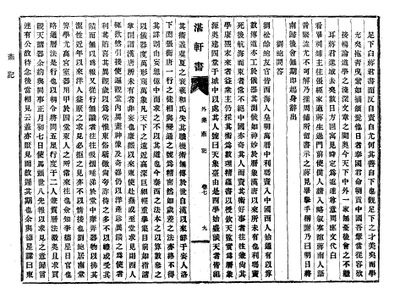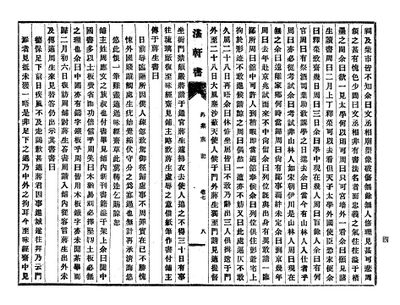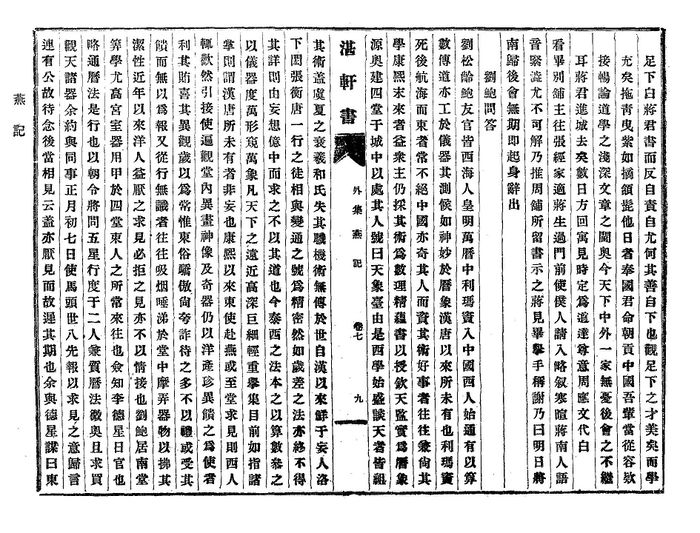Introduction
"Yupo mundap" is a short script from Hong Daeyong (洪大容 MR:Hong Taeyong, 1731-1783)'s <Travelogue to Beijing> 燕記 included in his anthology Damheonseo [MR: Tamhǒnsǒ 湛軒書]. It describes his encounter with two Jesuit missionaries in the Southern Church in Beijing, his observation on western architecture, paintings, the world map, astronomical devices and other products. This travelogue reveals Hong's practical attitude as a silhak scholar who actively advocated new learnings from Qing China, contrary to then existing notion of revering Ming and rejecting Qing 崇明排淸. Thus he paid a visit to Beijing to broaden his horizon by observing new books, stores, customs and famous sites influenced by westerners. The fact that he made a personal interpretations and comments without relying on classical allusion also reveals his practical character.
Original Script
| Image |
Text |
Translation
|

|
劉松齡,鮑友官。皆西海人。皇明萬曆中。利瑪竇入中國。西人始通。有以算數傳道。亦工於儀器。其測候如神。妙於曆象。漢唐以來所未有也。利瑪竇死後。航海而東者常不絶。中國亦奇其人而資其術。好事者往往兼尙其學。康煕末。來者益衆。主仍採其術。爲數理精蘊書。以授欽天監。實爲曆象源奧。建四堂于城中。以處其人。號曰天象臺。由是西學始盛。談天者皆祖其術。盖虞夏之衰。羲和氏失其職。機術無傳於世。自漢以來。鮮于妄人,洛下閎,張衡,唐一行之徒。相與變通之。號爲精密。然如歲差之法。亦終不得其詳。則由妄想億中。而求之不以其道也。今泰西之法。本之以算數。參之以儀器。度萬形窺萬象。凡天下之遠近高深巨細輕重。擧集目前。如指諸掌。則謂漢唐所未有者非妄也。康煕以來。東使赴燕。或至堂求見。則西人輒歡然引接。使遍觀堂內異畫神像及奇器。仍以洋產珍異饋之。爲使者利其賄。喜其異觀。歲以爲常。惟東俗驕傲尙夸詐。待之多不以禮。或受其饋而無以爲報。又從行無識者。往往吸烟唾涕於堂中。摩弄器物。以拂其潔性。近年以來。洋人益厭之。求見必拒之。見亦不以情接也。劉鮑居南堂。筭學尤高。宮室器用。甲於四堂。東人之所常來往也。僉知李德星。日官也。略通曆法。是行也。以朝令將問五星行度于二人。兼質曆法微奧。且求買觀天諸器。余約與同事。
|
(translation)
Liu Songling 劉松齡 and Bao Youguan 鮑友官 are all from Western Sea. During the reign of the Emperor Manli(萬曆 r.1573-1619) of Ming Dynasty, Li Madou 利瑪竇 came to China. Thereby exchanges with the Westerners began. They[The Westerners] propagate their teachings by the means of mathematics, they are also skilled in astronomical devices. Their astronomical and meteorological observations are miraculously accurate. As for the delicacy of their calendar and meteorology, there was nothing like that since the era of Han and Tang dynasties. After the death of Li Madou, those who crossed the sea toward East never stopped coming. China also highly regarded them and utilized their skills. Those who are fond of meddling / Curiosity-mongers often revered their learning. In the later period of Emperor Kangxi [康煕, r.1662-1722], even more westerners came to China. The Emperor collected their skills and composed the book Shuli jingyun [數理精蘊, Essence of Numbers and their Principles] to pass it to the Imperial Board of Astronomy 欽天監. Indeed, this book became profound basis of calendar and meteorology.
|

|
|
(translation)
|
Q1. What was the impact of Hong's record to Joseon society? Did it make any change in Joseon court's attitude toward western learning?
Q2. Hong's perception on the West - how is it different from that of Yi Sugwang?
Further Readings


